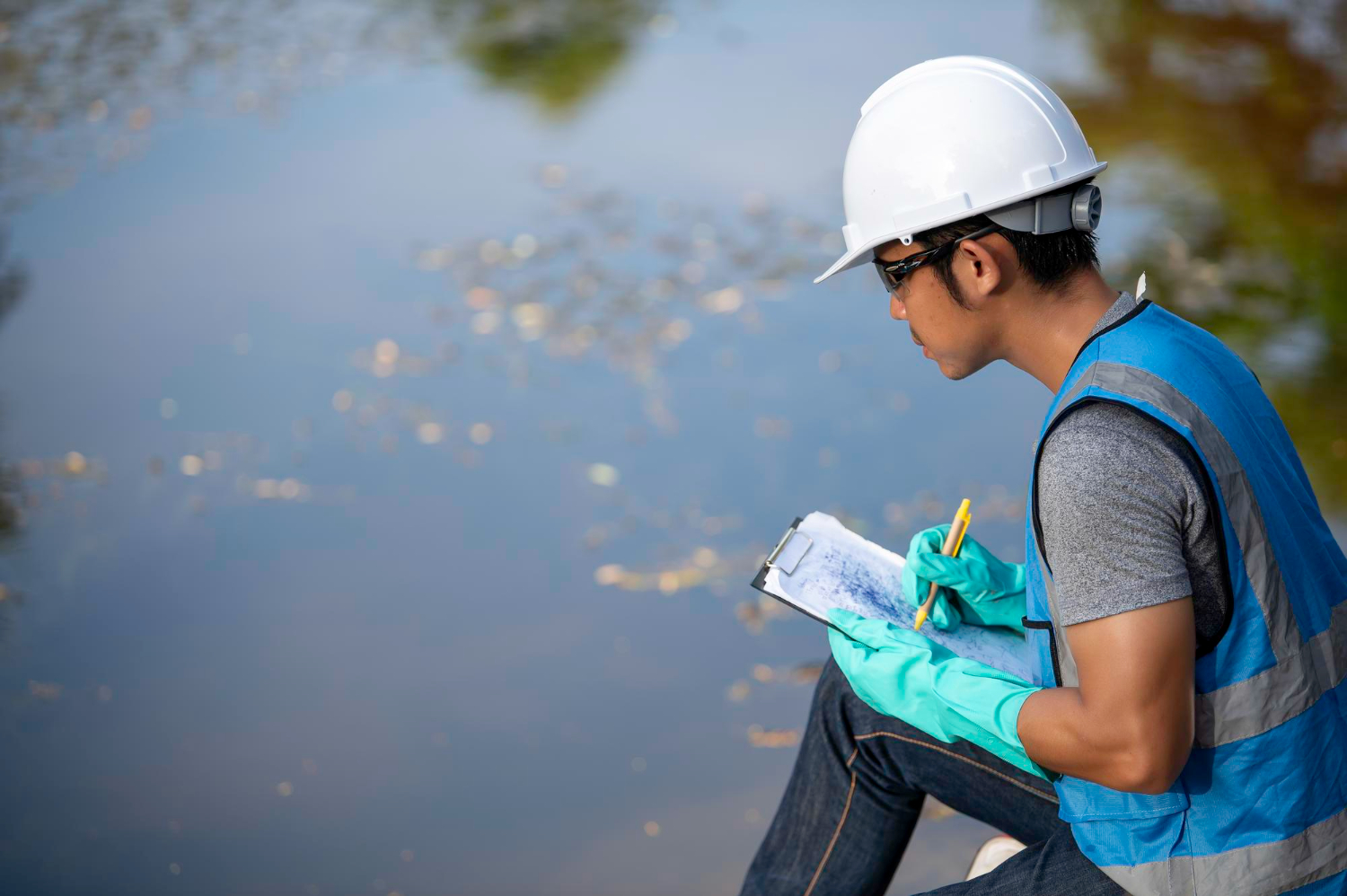
Lakes can be wonderful sources of recreation, leisure, water supply and much more. However, just like other water bodies, lakes have problems with algae overgrowth, sediment buildup, invasive aquatic plants, and declining water quality. If you own a lake or you’re in charge of managing one, it’s important to understand the science behind healthy lakes.
At Aquatic Restoration, we are dedicated to helping lake and pond owners maintain healthy ecosystems. We offer a wide range of lake services, including lake dredging, shoreline stabilization, spillway renovation, siphon installation, and many more. Today, we share the basics that will help you maintain a healthy lake.
A healthy lake starts with good water quality. This involves the right balance of nutrients, oxygen levels, and pH, along with minimal pollutants. Nutrients like nitrogen and phosphorus occur naturally, but when levels rise due to runoff from fertilizers, sewage leaks, or stormwater, they can trigger excessive algae growth. This process, known as eutrophication, can deplete oxygen and harm fish and plant life. Healthy lakes also rely on well-structured habitats, from shallow wetlands that filter water to deeper zones where aquatic life can thrive undisturbed.
A lake is an interconnected web of life where every element plays a role. At the base of the food web, tiny algae use sunlight for photosynthesis, producing oxygen and feeding zooplankton, which in turn feed fish. Aquatic plants provide shelter for fish and help stabilize sediment, while decomposers break down organic matter and recycle nutrients. A disruption in any part of this system, such as the loss of native plants or introduction of invasive species, can throw the entire lake out of balance.
Several factors can threaten a lake’s ecological balance:

Effective lake management in Georgia begins with monitoring. Regular testing for nutrient levels, oxygen, pH, and water clarity helps identify problems early. Once issues are detected, solutions may include:
Science alone can’t keep a lake healthy; it also requires engaged communities. Local residents, lakefront property owners, and recreational users all have a role to play. The community as a whole should be encouraged to avoid over-fertilizing lawns, maintain septic systems, and support conservation projects. Many successful lake management programs also rely on volunteers for water sampling, wildlife monitoring, and public education campaigns.
If you’re looking for a trusted lake management company, get in touch with the team at Aquatic Restoration. Perhaps your lake has accumulated a lot of sediment that seems to be reducing its depth and clouding the water. Or maybe you’re looking for a lake specialist to check the water quality and offer professional recommendations. Aquatic Restoration is here to help you maintain healthy lakes and ponds. We have been around for over 35 years, and our specialists have the knowledge and expertise to keep your water ecosystems in peak condition.
Lake management is an integral part of keeping your lake in peak condition. It involves activities such as lake…
There are many incredible benefits that come with restoring natural lake depth. Not only does it improve water quality…
When it comes to maintaining healthy water bodies, there are two primary methods that are often used: dredging and pond…
There’s peace of mind in knowing you have a reliable detention pond on your property. These man-made ponds temporarily hold…
Owning waterfront property is a dream come true for many people. Everything from the stunning views to a relaxing lifestyle…